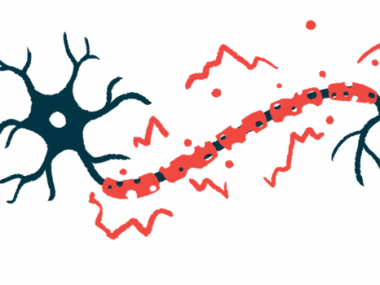Reflections on the Joys of Parenting an FA Teen
Written by |

It’s been a while since I have had the courage to write a column. I don’t want to seem melodramatic, but the vulnerability of sharing about parenting a child with FA wipes me out emotionally, and I tend to be down for a few days afterward.
Writing about it makes me face the feelings that accompany our daily challenges. Sometimes it’s easier to put my head down, do the work, and not think about it. During COVID-19 quarantine, I didn’t have the liberty to take time for myself to mourn after I wrote a column, which is what I usually did when my kids were in school.
So, I promised myself that the next time I wrote something, it would be uplifting. My goal this time is to say something positive to make people feel good rather than pitying me. This is my attempt to show the happy side of FA.
For Mother’s Day last month, I had the chance to spend some time with my mother, whom I hadn’t seen since February. As per usual, we drank lots of wine and talked into the night. We discussed parenting and the joys and hardships that come with being a mom. She said, “One of the hardest things is watching your children grow up and move on. There is a grief that comes with that.”
I found that comment to be interesting, and it has led me to realize that there is a special blessing that comes with being the parent of a child with Friedreich’s ataxia. I have a bond and friendship with my daughter that is unique. I am closer to her than most mothers are with their daughters — especially teenage daughters. I know this closeness likely will continue because of the obstacles that we face together.
I hope and dream that she will graduate high school, go to college, become an independent adult, marry, and have her own family. But I know this is not always the path for FA patients, particularly for someone with her rate of progression, unless a cure is found. My daughter already is dependent on me for daily activities, and I know that there are personal things that she is comfortable asking only me to help her with. There are some things only your mama can do.
I joyfully serve her, knowing that she may not show me appreciation or acknowledge my sacrifices. The flip side is that I truly know her and get to see her in ways that many teenagers only show their friends. She is my best friend, and whether she likes it or not, I am hers.
In the past week or so, an email comment thread has addressed this topic in our FA parents’ group. It struck me how similar to me most of the parents feel. The closeness that parents experience with their child is something that often is hard to explain. The closeness that parents feel to a child who is suffering takes that to a new level.
Following are some of the comments I’ve taken great comfort in hearing:
“I get tired and sometimes irritable, but I look at my son and think it’s an honor to serve you, you have taught me so many lessons of life.”
“[T]he life you signed up for may not be the one you have now, but be assured you will have many fun and special moments despite the difficulties. So when your FAer falls, you throw yourself on the ground next to them and laugh your head off!”
“[T]he bond and relationship you form with your FA child is like none other and I would not trade it for the world. Even though it is difficult and not the life you picture yourself in. We laugh and joke about so many private things that we should be shocked and saddened by. But you make the best of it, and remember that somehow you know this is the hand you and your child have been dealt and that you will make it the best possible one!”
“[W]e don’t think twice about doing personal or embarrassing things for our children, because we love our kids and would do anything and everything needed to provide care and make them feel loved. We continue to be parents, no matter their age. These personal and intimate moments foster incredible respect and love.”
“The big realization for me was that, while I am close to my daughter and my other son, it’s nowhere near as close as I was to my child with FA, in that I could talk about anything with him. I think that the physical things I had to do with him, blew away the normal barriers. We were no longer just ‘mother and son’, but also had a ‘friend’ relationship. He would bring things up with me and talk to me like any friend would. And I knew I could talk to him about thoughts I would never burden my other children with. To this day, even living with my daughter/son-in-law/grandkids there are things I just don’t talk about with them that I would absolutely talk to my child with FA about if he were still here.”
I am hoping that each day I can remember what a blessing it is to be the parent of such an incredible child.
***
Friedreich’s Ataxia News is strictly a news and information website about the disease. It does not provide medical advice, diagnosis, or treatment. This content is not intended to be a substitute for professional medical advice, diagnosis, or treatment. Always seek the advice of your physician or another qualified health provider with any questions you may have regarding a medical condition. Never disregard professional medical advice or delay in seeking it because of something you have read on this website.






Sara Jane McKone
Thank you for writing. Your bravery amazes me every time. God bless you!
Anastasia ROUSCH
What a wonderful story.
I had tears running down my face reading this article.
We have a son who is turning 50 on the 21st July and our
love to him is truly amazing.
His F.A. reared its ugly face when he was 13 years old and
progressed over the years. He never gave up wanting to
be just "normal". He is now in a wheel chair.
Nick graduated from University with a Commerce Degree and
found a wonderful job with an insurance company working three days
a week.